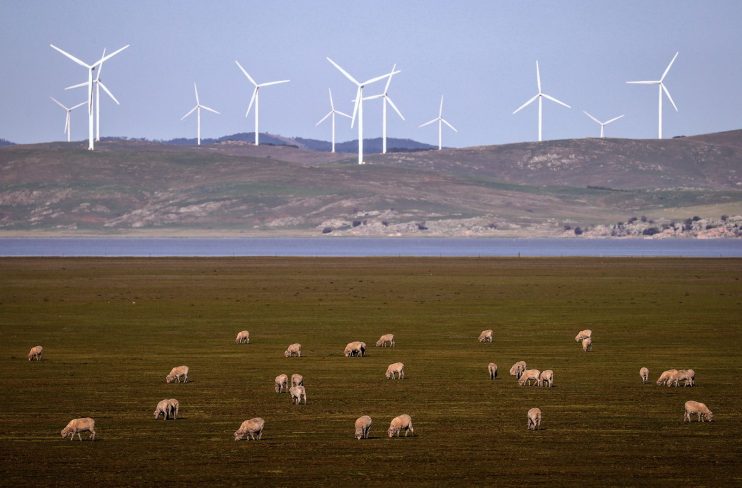UK must cut emissions 78 per cent by 2035 to hit 2050 net zero target

The UK must cut emissions by 78 per cent by 2035 in order to hit its target of being net zero by 2050, a new report by the government’s climate advisers has found.
Such a cut effectively brings forward the country’s former target of reaching an 80 per cent reduction in emissions by 2050 by 15 years.
In order to do so, the Climate Change Committee’s (CCC) carbon budget said that investment must increase to £50bn per year.
However, due to savings incurred as a result of making such investments now, the CCC said that this would amount to less than one per cent of GDP across the next thirty years.
In order to hit the targets identified in the carbon budget, the CCC highlighted four areas where progress is required.
These include reducing demand for carbon intensive activities by eating less meat or dairy and by reducing travel demand, as well as improving energy efficiency standards in buildings, vehicles and industry.
It also calls for the widespread take-up of low carbon solutions such as battery electric cars. Last month Boris Johnson announced that the sale of new petrol and diesel cars would be banned from 2030, not 2035 as previously expected.
The report also says that hitting the target will require a massive increase in low-carbon energy supplies, with demand set to rise 50 per cent by 2035.
Before the Open newsletter: Start your day with the City View podcast and key market data
Wind power is slated to be the main contributor, with capacity of 40 gigawatts targeted by 2030. However, by 2050, the increase in energy demand could see this rise as high as 125 gigawatts.
In addition, the report calls for the government to press ahead with developing new build nuclear capacity. It says ministers should aim to replace existing capacity by 2035, totalling 10 gigawatts in total.
Finally, the carbon budget says that the UK will require a widespread change to its use of rural land by 2035, with hundreds of thousands of hectares required for planting trees to capture carbon dioxide and provide land for biofuel production.
Farmers must also adopt low-carbon agricultural techniques, whilst the government must restore peatlands to serve as carbon sinks.
The CCC said the changes are “feasible and affordable” but only if they are led by decisive action from government now.
“The 2020s must be the decisive decade of progress and action on climate change”, it added.
The CCC report comes just weeks after Boris Johnson laid out a 10-point climate change plan designed to put the UK on track to hit its 2050 target.
Despite some eye-catching commitments to electric vehicles and wind power, many analysts thought that the steps were short on critical detail.
Last week, Johnson went further, pledging a 68 per cent reduction in emissions by 2030.
Treasury select committee chair Mel Stride said: “The CCC report is clear that substantial action is needed to ensure that zero carbon transport and domestic heating options are ready for the 2030s.
“The Government should now publish its Net Zero Review interim report, setting out its strategy for achieving net zero, and take into account the important recommendations made by the Climate Assembly.”